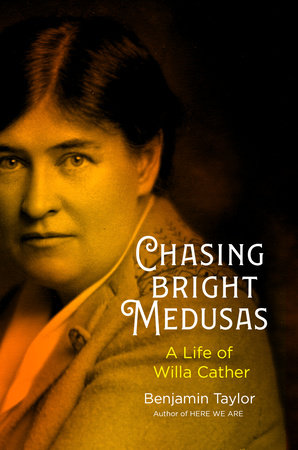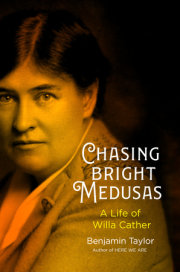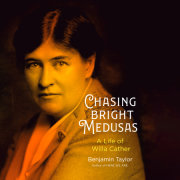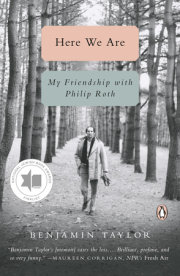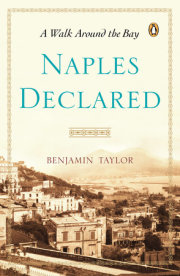“[Taylor's] swift account turns Cather’s conservative side to the light, stressing her idealism and moral backbone, and paying rare attention to the Anglican faith that sustained her in later life. He writes from 'a debt of love' and admires Cather enough to lay bare her flaws…It takes real confidence, as well as real depth of knowledge, to see clearly the territory of such a complex life and mass of work.” —The New York Times
“Chasing Bright Medusas should appeal to anyone — novice or expert — ready to explore Cather’s life and work in the company of a critic so alert to the shimmering subtlety of her style and the hard years of effort that went into crystallizing it.”—The Washington Post
"This succinct biography is a terrific introduction to the life and work of the Pulitzer
Prize winner...Taylor reminds you of what you loved of her work while encouraging you to pick up the books you may not have read." —The Boston Globe
"This slim homage to one of the great American writers is an absorbing introduction...After finishing the book, yes, I finally started reading Cather." —The Minneapolis Star Tribune
“. . . [A] solid critical biography . . . It’s a strong overview of Cather’s bibliography that’s as concise as her best novels.” —Publishers Weekly
"Taylor’s deep reading and extensive knowledge of Cather’s work, from her poetry, letters, and stories to her classic novels, allows him to fluidly and expertly use quotations from Cather’s writings to illuminate her experiences and evolution. ... Taylor’s stunning achievement should similarly renew enthusiasm for Cather.” —Booklist (Starred Review)
"...[Cather's] words seem to have truly inspired Taylor. His interpretations of the interplay of memory and description in Cather’s work are some of the most lyrical and moving passages in this highly polished and heartfelt book." —Bookpage (Starred Review)
“Taylor’s book succinctly captures the milieu of the author’s youth and the 'years of frenzy' that followed. . . . there’s something touching about the quaintness of Taylor’s devotion to Cather.” —Bookforum
“...Taylor provides a remarkably revealing account of the life and creative output of Willa Cather...Taylor’s connection of Cather’s personal life and her literary inventions is consistently astute, and the exuberant force of her imagination emerges vividly...the author presents a rewarding and perceptive portrait, providing a valuable assessment of Cather’s intriguing character and the enduring importance of her oeuvre. Keen, insightful commentary on a literary master.” —Kirkus Reviews
"Mr Taylor approaches Cather’s work in a spirit of appreciation. A shelf of studies of the author already exists, he says, so instead he aims for a personal response to her work. That means his view is unabashedly partisan. At one point Mr Taylor defends Cather against criticism from Ernest Hemingway, who had privately mocked her for writing about war without ever having seen a battle. 'With all due respect to Hemingway,' Mr Taylor writes, her interest was in the nature of grief, not munitions.” —The Economist
"Chasing Bright Medusas is an appreciation, a fan’s notes, a life démeublé. Taylor’s love of Cather’s sublime prose is evident and endearing." —The American Scholar
“Willa Cather ‘was her own raw material,’ Benjamin Taylor tells us in his sober, elegant, and compact life of his heroine. Taylor’s graceful insight and wit, alive in every sentence, pay tribute to Cather’s style and to the truthfulness of her vision. Chasing Bright Medusas is a love letter from one writer to another, offering an intimate, inside view of the living art." —Rosanna Warren, author of Max Jacob: A Life in Art and Letters
“Chasing Bright Medusas is a loving appreciation of Willa Cather's belated genius, her sense of who she was, and the writer she was destined to be—strong in execution, simple, and sure. This book is a graceful portrait of an unusual woman, a passionate humanist who bucked the trends of the times." —Brenda Wineapple, author of The Impeachers: The Trial of Andrew Johnson and the Dream of a Just Nation
"From what he calls ‘a debt of love,’ Benjamin Taylor has produced a swift, sure-footed, immensely pleasurable biography. His Cather is at once an adamant antimodernist and an intrepid experimenter, an idealist of America and a chronicler of its darknesses. His passionate readings make clear that she is, above all, one of our greatest writers." —Garth Greenwell, author of Cleanness
"Willa Cather was a great American writer. She was also a formidable and complicated woman. Benjamin Taylor knows just when to assert, when to question, and when to suggest. His elegant biography cuts away the clutter. He brings a storyteller’s breadth and a critic’s precision to Cather’s life and art." —Margo Jefferson, author of Constructing a Nervous System: A Memoir

